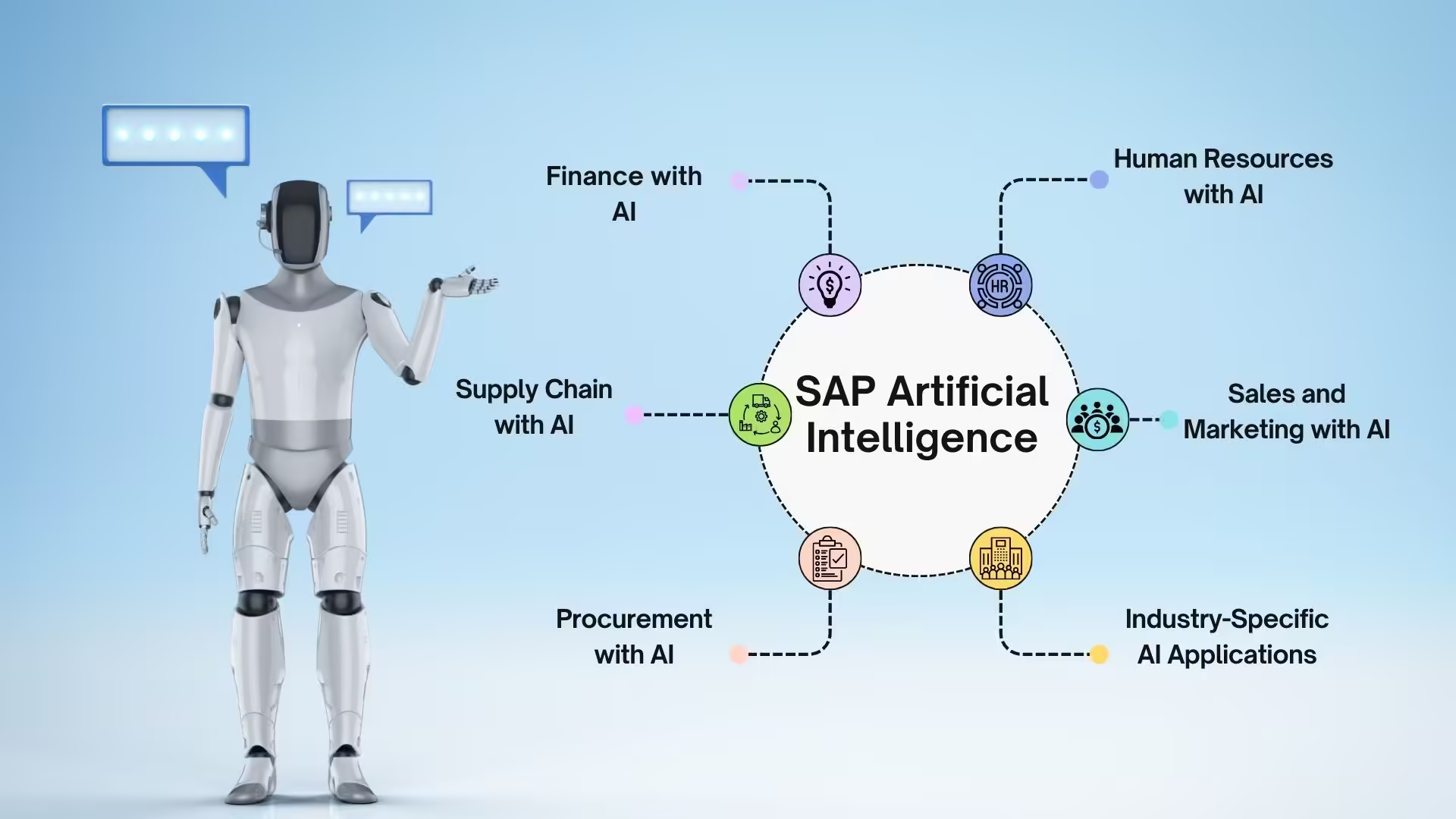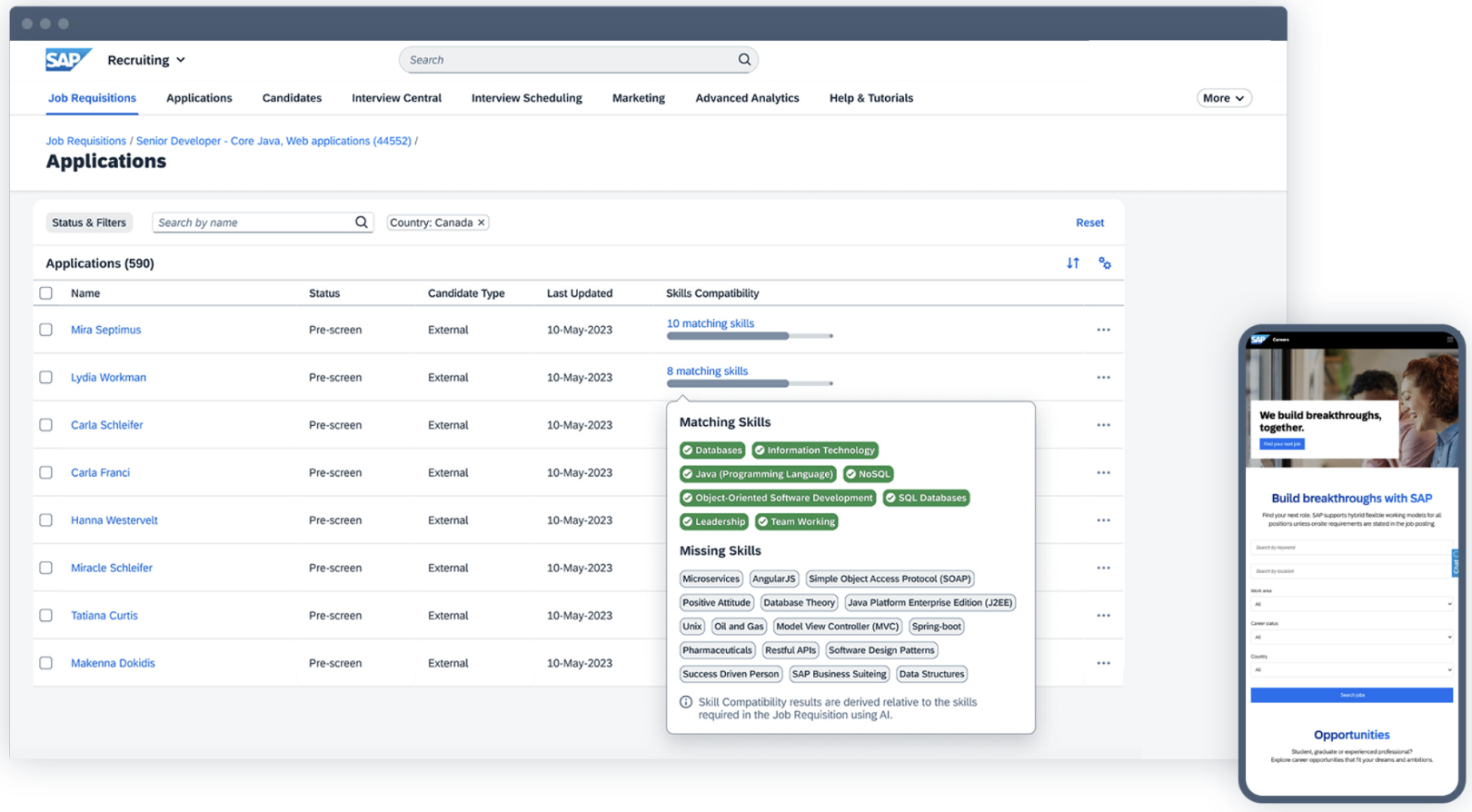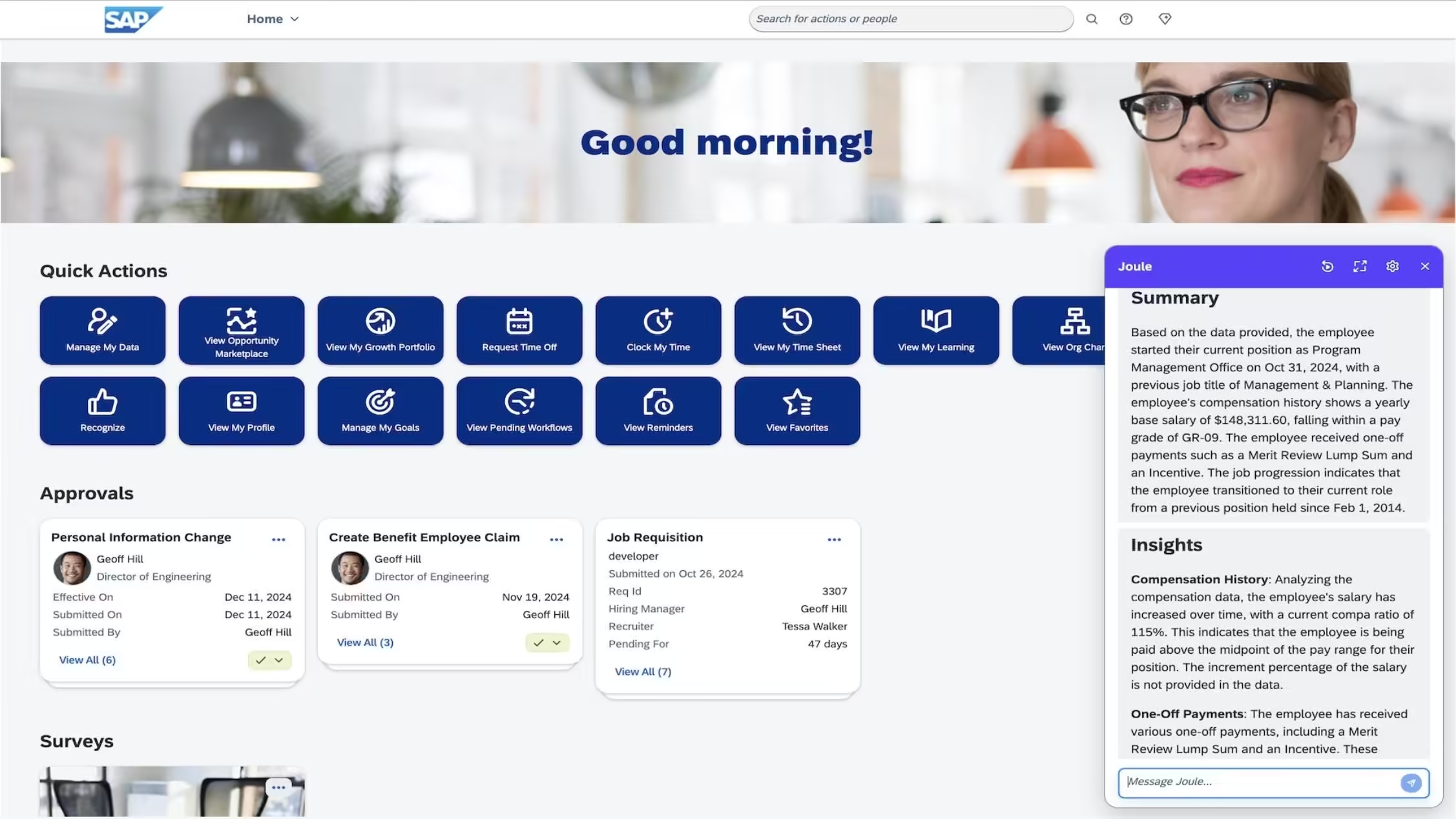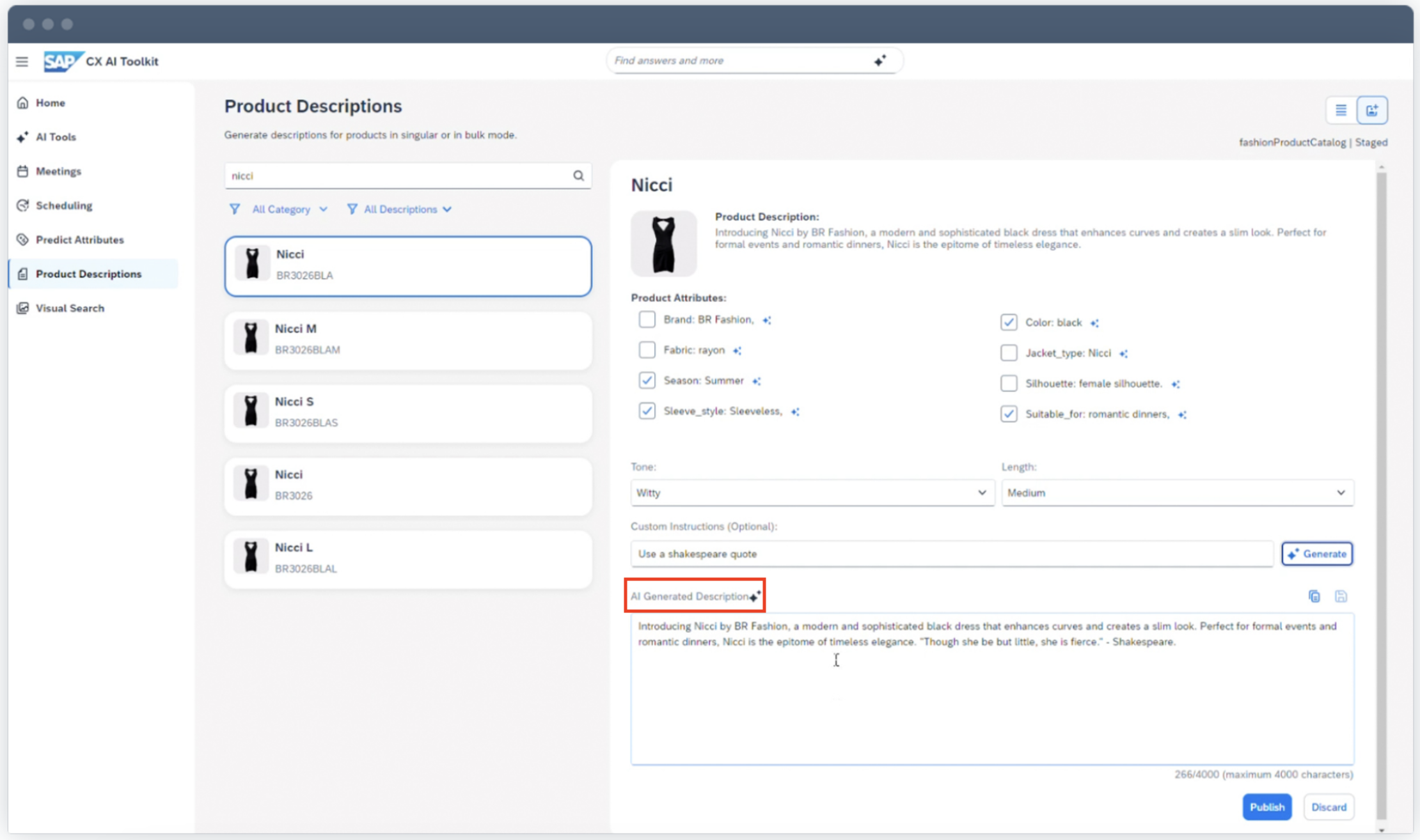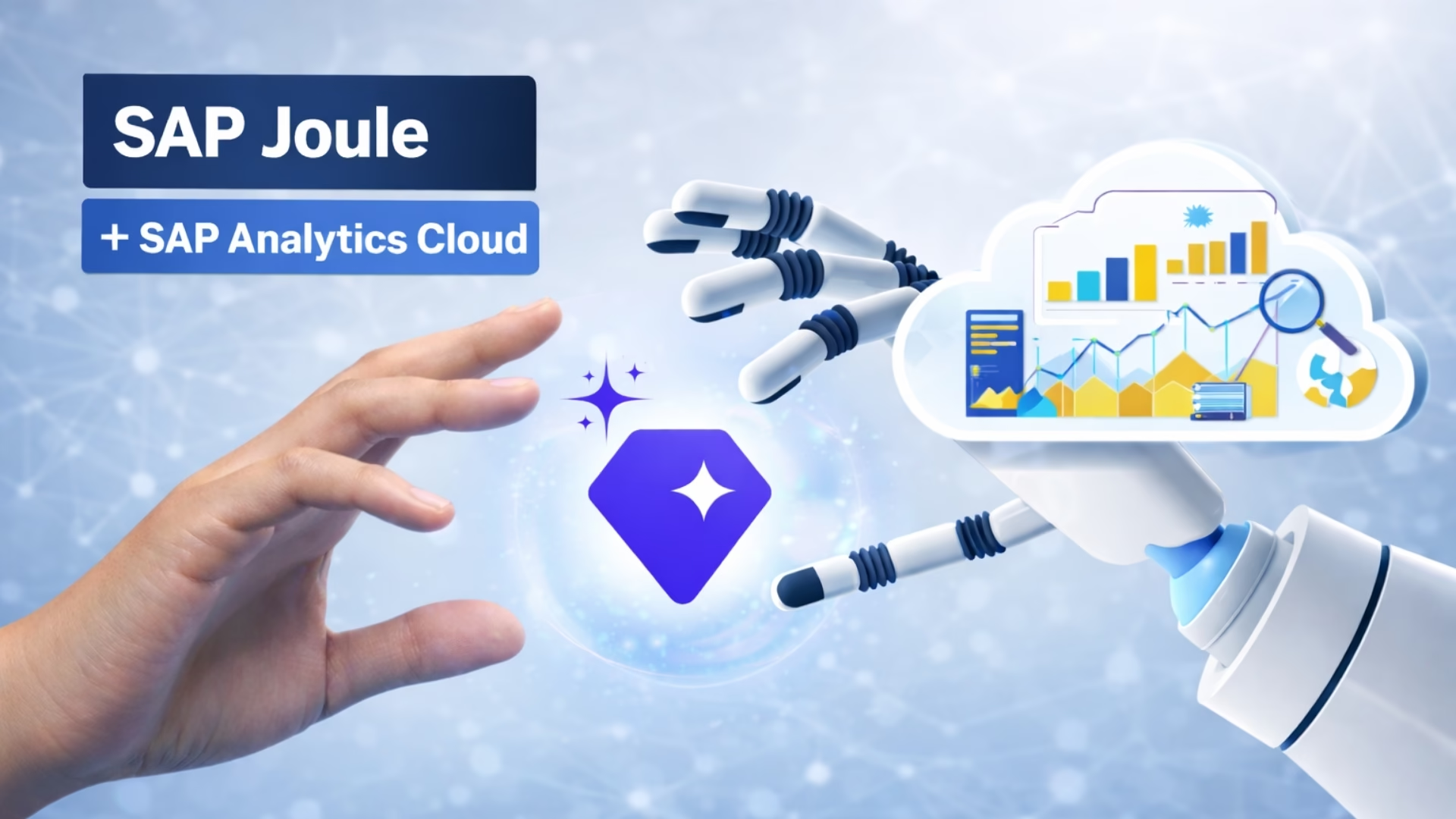Transforming Business with SAP AI: A Deep Dive into Key Applications
The integration of SAP Artificial Intelligence (AI) into various business operations is transforming how companies approach efficiency, accuracy, and strategic insights. From finance to supply chain management, procurement, human resources, sales, marketing, and industry-specific processes, SAP AI is proving to be an invaluable asset.
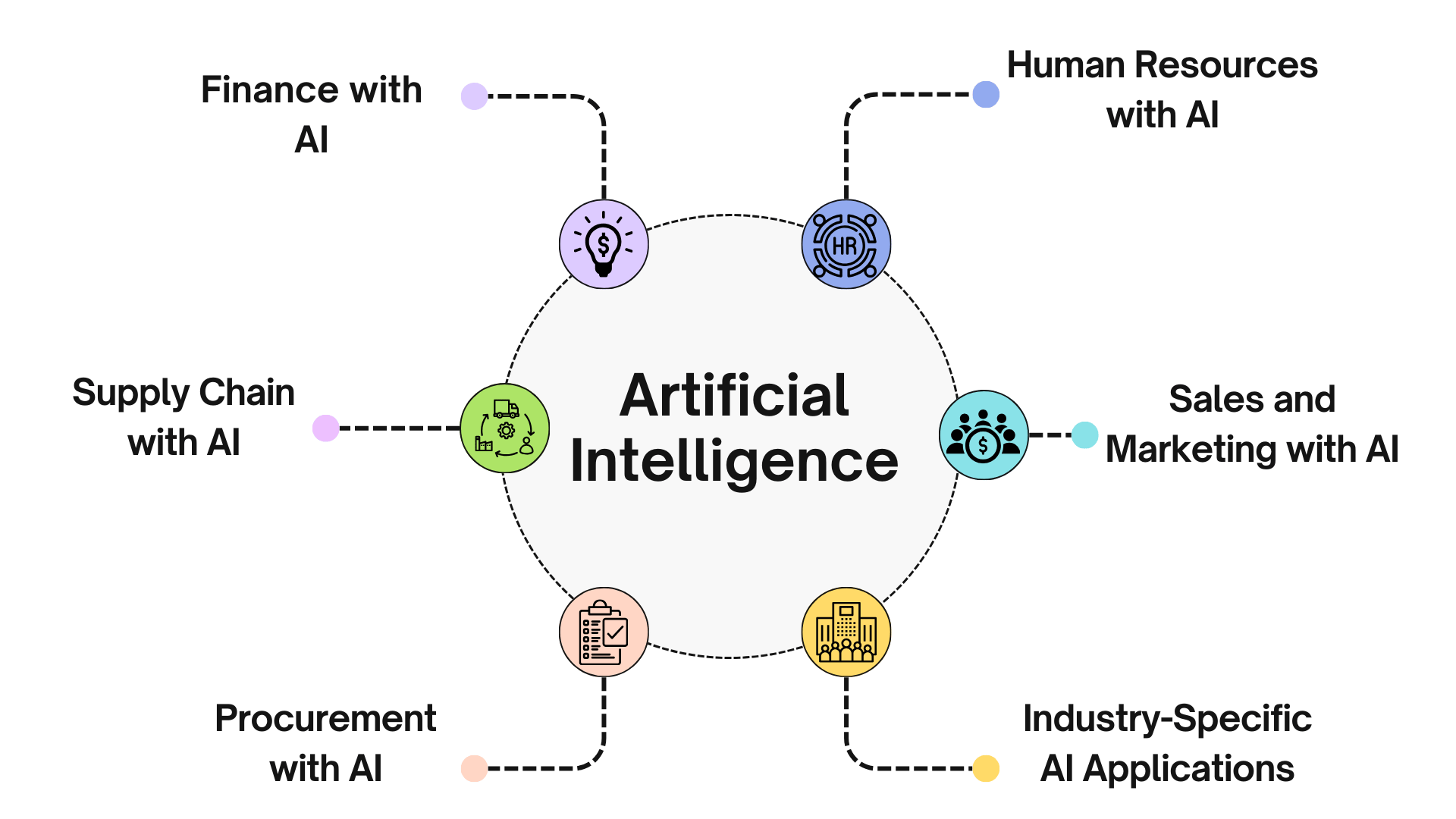
Finance with SAP AI
SAP AI is revolutionising financial processes by automating tasks such as invoice matching, auditing, payments, and expense management.
This leads to reduced days sales outstanding and simplifies error resolution through intelligent guidance. SAP AI also helps to prevent financial fraud by detecting anomalies that might be missed by humans.
Let’s have a look at some of the real world examples:
Intelligent Invoice Matching:
SAP Cash Application uses machine learning to automate the matching of incoming payments to invoices, which reduces manual effort, lowers days sales outstanding, and enhances the quality of work related to accounts receivable.
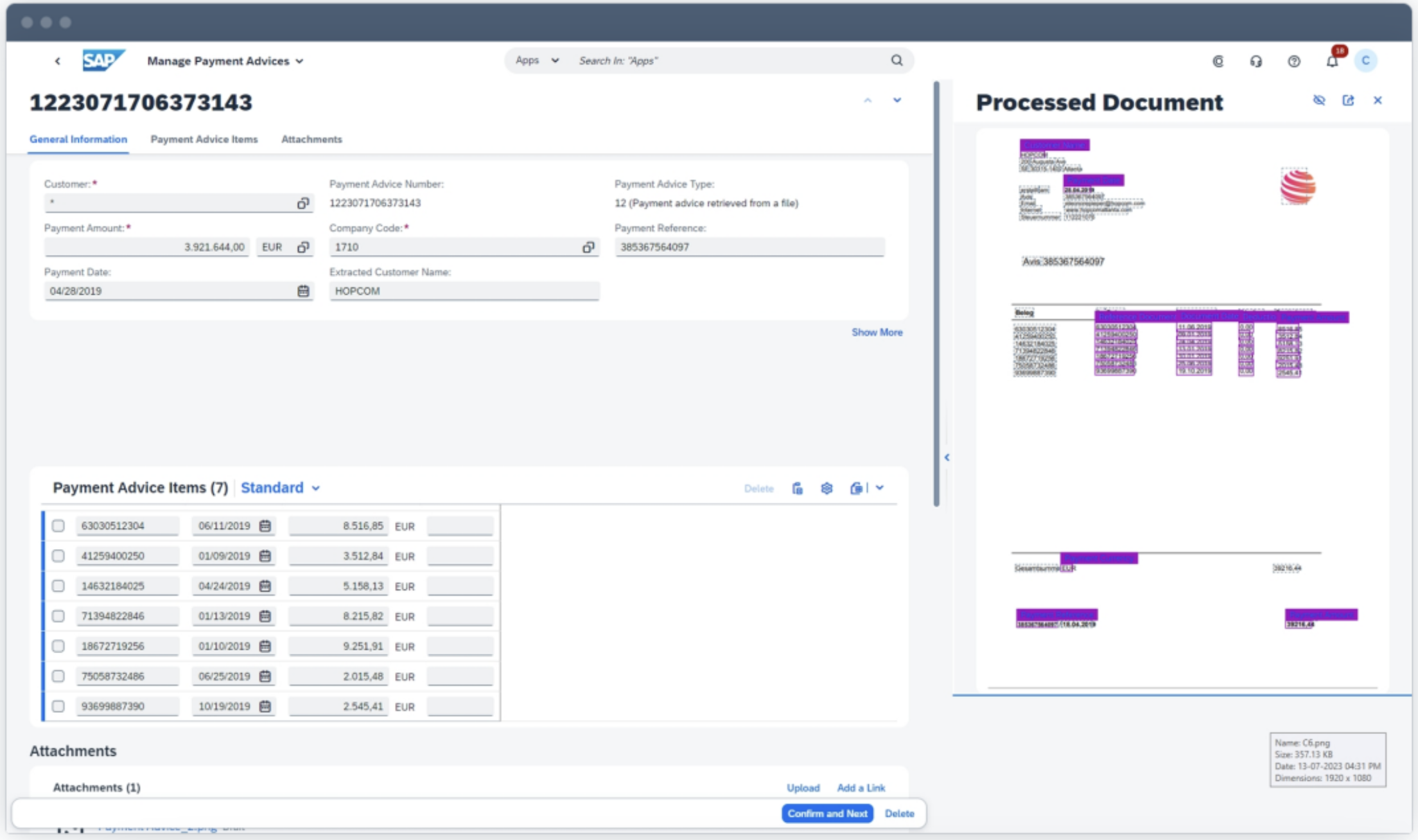
It can automatically learn from accountants’ actions to improve matching accuracy.
Predicting Late Payments:
AI analyses accounts receivable data to predict late payments, allowing for more effective collection activities. This reduces collection costs and minimises write-offs.
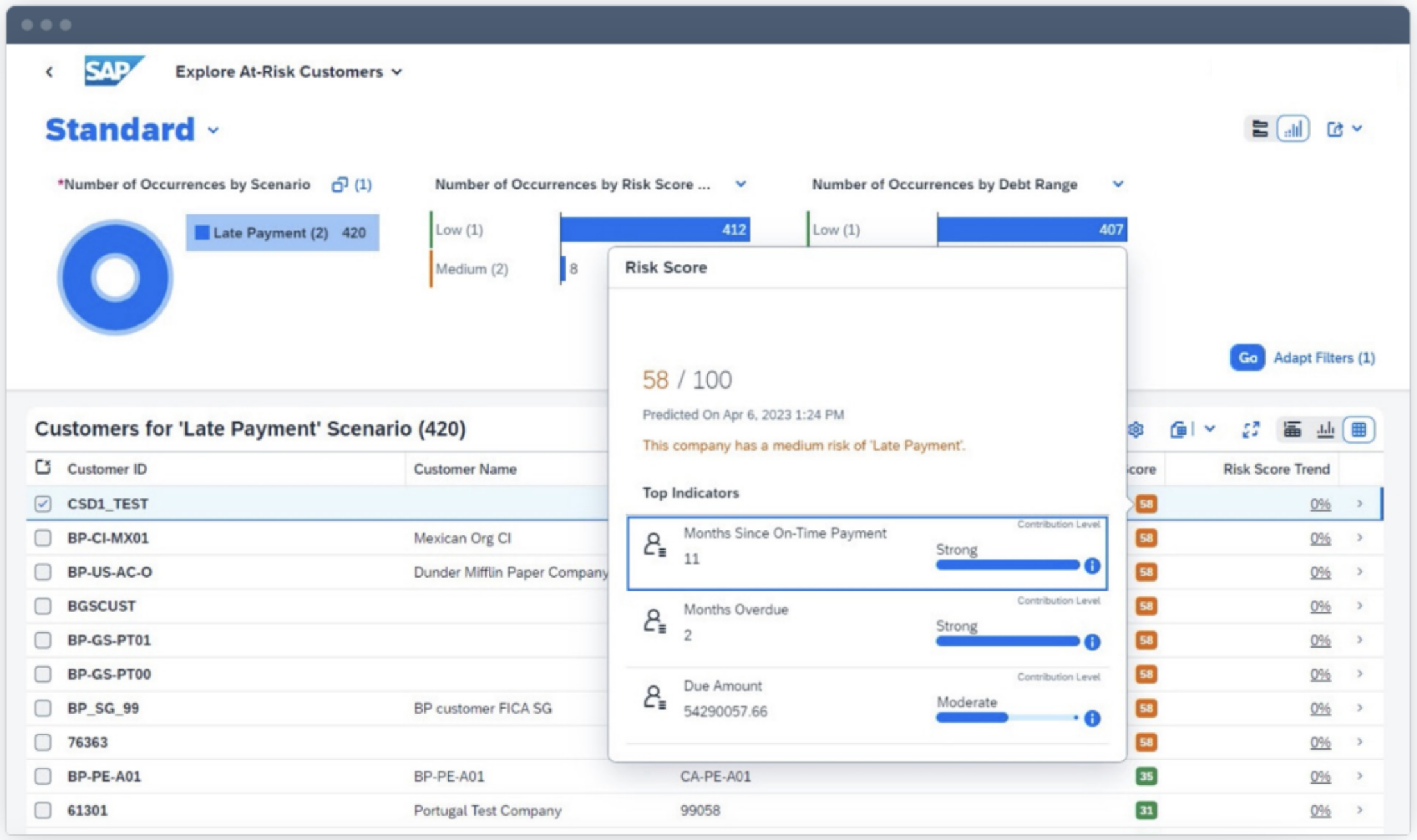
Enhanced Financial Close:
SAP AI improves the goods receipt/invoice receipt (GR/IR) account reconciliation processes, leading to reduced processing times during financial close. It can also help resolve common errors during the financial close using a step-by-step guide.
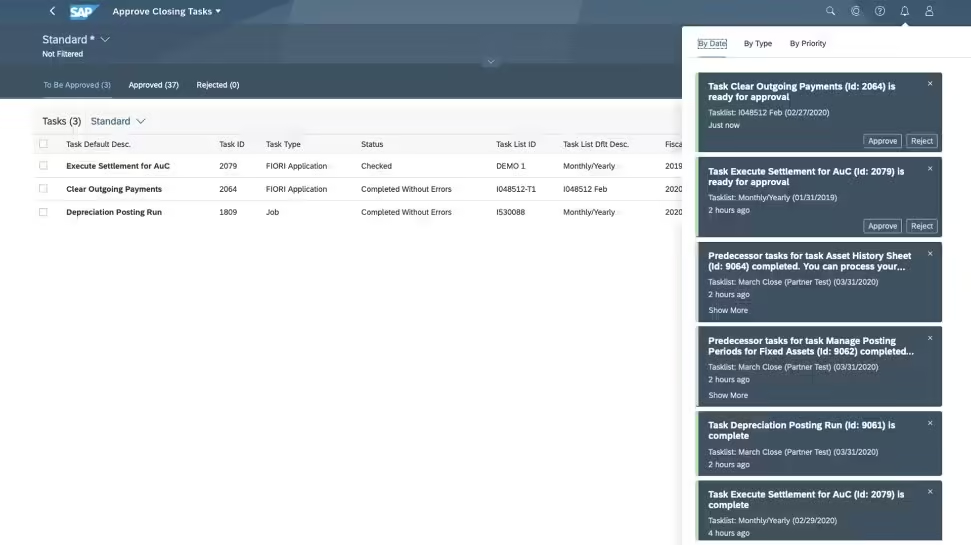
Tax Compliance: AI streamlines and automates tax compliance checks, learning from manual decisions to increase automation rates over time.
Data Analysis: AI tools can rapidly analyse large volumes of data, detect discrepancies and identify trends.
Planning and Strategy:
AI supports planning and strategy by making forecasts and automating budgeting processes with predictive analytics.
AI enriches planning models with historical data from source systems and external market conditions, benefitting from predictive scenarios.
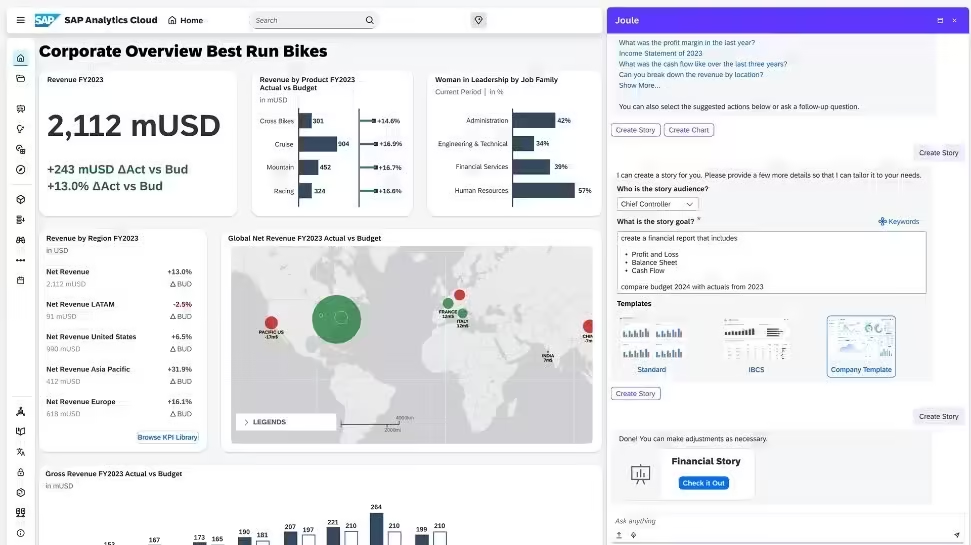
Decision-Making:
AI enhances decision-making in finance, with tools available to provide data-informed recommendations. With the ‘just ask’ feature, users can search data using natural language and get answers in the form of charts and tables.
Supply Chain with SAP AI
In supply chain management, SAP AI facilitates a more responsive approach to customer demand and production adjustments.
Here are some of the popular use cases from SAP AI:
Demand Forecasting:
SAP AI can predict customer demand using real-time information and historical data. This helps reduce inventory costs and maximize resource utilisation.
SAP Integrated Business Planning uses machine learning and statistical models to generate accurate demand plans.
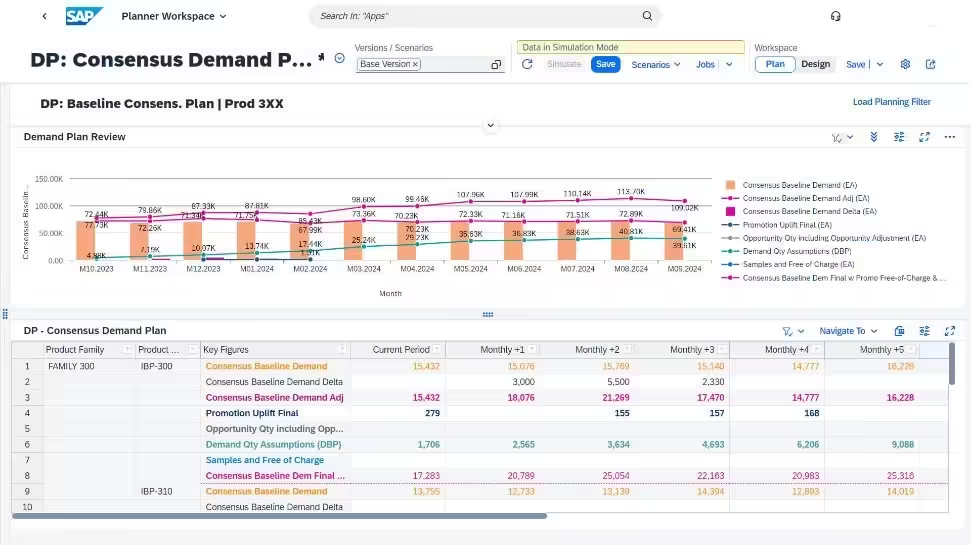
Quality Control:
AI-enabled visual inspections and anomaly detection improve quality assurance and help to mitigate risks before they escalate. Machine learning can be used for visual inspections, enhancing production efficiency with automated planning and dispatching.
Predictive Maintenance:
SAP AI can predict equipment failure using IoT data and send warnings to maintenance and operations. This enables proactive maintenance, reduces downtime, and uses machine learning to analyse failure modes.
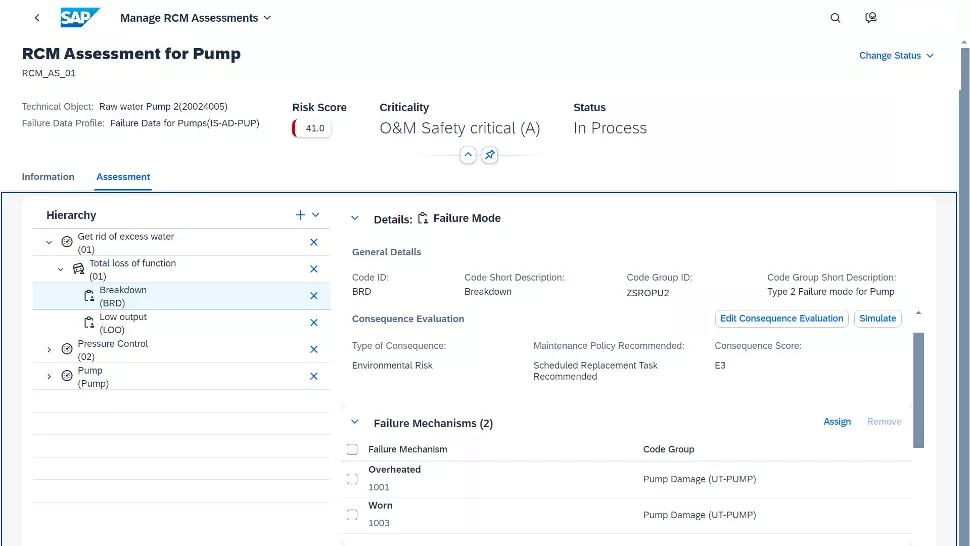
Optimised Logistics:
AI automatically derives slotting rules from product data in warehouses and generates statistical models from system data. It can also automate the processing of goods receipts and delivery notes, improving operational efficiency and data quality.
Product Development:
AI enhances product development by connecting 2D or 3D product models to business information and process-related data. It helps to reduce time spent on tagging master data to 3D visualisation objects by automatically identifying and assigning master data to components.
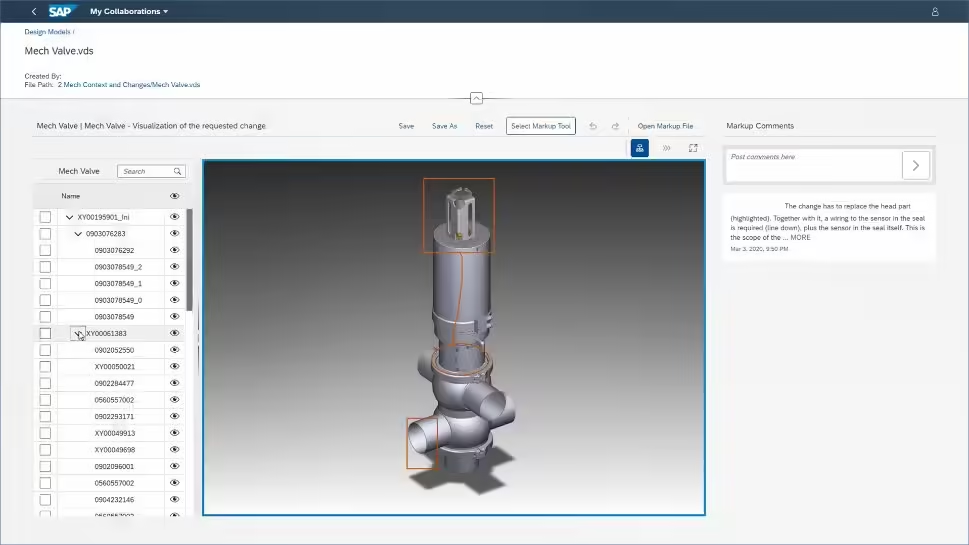
Risk Management:
AI helps evaluate supply chain risks and projected delays, helping businesses focus on the most critical shipments. It can also improve demand forecast accuracy by considering multiple factors such as inventory levels and weather changes.
Procurement with SAP AI
SAP AI transforms procurement into a proactive, data-driven operation. Here are a couple of examples:
Automated Compliance: Automated systems provide on-screen recommendations to ensure purchasing compliance.
Data Extraction: AI streamlines data extraction and minimises manual effort, reducing errors and improving decision-making. It provides prescriptive guidance based on historical data and trends.
Human Resources with SAP AI
AI in human resources fosters a dynamic and inclusive workforce environment. Lets find out more use cases in HCM.
Talent Acquisition:
AI enhances talent acquisition by matching candidates with suitable job opportunities and improves the employee experience using digital assistants for real-time help.
SAP AI can also quickly generate job descriptions and interview questions, identify qualified candidates, and speed up the hiring process.
Employee Engagement and Retention:
By personalising experiences and providing tailored career growth recommendations, SAP AI creates a more positive and productive work environment, increasing employee satisfaction.
Efficiency:
SAP AI streamlines HR processes, such as compensation discussions, candidate assessment, and job description creation, by up to 90%. It allows HR to focus more on strategy and less on routine tasks.
Sales and Marketing with SAP AI
SAP can personalise customer interactions with AI by tailoring product recommendations and enhancing lead scoring to strengthen sales pipelines.
Personalised Experiences:
SAP AI helps businesses understand and respond to customer behaviour, minimise churn, and maximise upselling opportunities. AI marketing automation can target customers based on lifecycle stage, engagement propensity, or estimated spend.
Product Recommendations:
SAP AI recommends products based on customer interactions, purchase history and browsing patterns. SAP Intelligent Product Recommendation uses historical data and machine learning to simplify price quotations and recommend products based on customer needs.
AI-Driven Content:
Generative AI can be used to tailor email subject lines and preview text, as well as enrich product descriptions and tags.
Audience Segmentation:
Its key to segment audience to reach out to them with more personalised messages. SAP AI is enabling faster creation of audience segments using natural language and generative AI.
Sales Efficiency:
AI identifies high-potential leads and guides sales teams, optimising sales efforts and customer engagement strategies.
SAP AI can also generate tailored information to enhance the sales team’s understanding of accounts and leads, as well as recommend next actions and email drafts.
Shopping Assistance:
It might to new for you but, SAP AI shopping assistants use natural language to help customers find products online.
Industry-Specific SAP AI Applications
Industry-Specific SAP AI Applications
AI is versatile, and it’s proving its value across industries by simplifying complex processes and modernizing operations.
Agriculture:
Farmers can make better growing decisions with SAP AI. It analyzes weather patterns, soil conditions, and market trends, offering insights that promote sustainable farming. With SAP Intelligent Agriculture, the plan-to-harvest process becomes more efficient.
E-Mobility:
Managing electric vehicle fleets is easier with AI. It identifies the best charging times to lower costs and prevent overloading the power grid. SAP E-Mobility helps businesses manage their EV charging networks smoothly.
Retail:
Retailers are turning to AI for data-driven decisions. From predicting demand to automating processes, SAP AI personalizes product recommendations and optimizes merchandising. It ensures customers see the products that matter most to them.
Manufacturing:
SAP AI takes the guesswork out of production. It improves efficiency through better planning and automates dispatching, allowing manufacturers to streamline their operations.
Trade Promotion:
SAP is making trade promotions more effective. It uses AI forecasting models to predict the outcomes of promotional plans, helping businesses optimize their spending. SAP Revenue Growth Management ensures that trade promotions are planned and executed efficiently.
Looking Ahead
The application of SAP AI across these critical sectors underscores its transformative potential in business.
By automating complex processes, providing insightful data analysis, and enhancing decision-making capabilities, SAP AI is not just a tool for innovation—it is a foundational element that propels businesses towards a more efficient, accurate, and insightful future.
As industries continue to embrace SAP’s AI solutions, the scope for growth and improvement expands, paving the way for a new era of business operations that are smarter, more responsive, and continuously evolving.
SAP will continue to reshape human roles and responsibilities with AI, creating new tasks and shifting the focus of work toward strategy and analysis.
🤔 What if the smartest career move you make this year is learning SAP AI? Discover the SAP AI Masterclass on Udemy (crafted by Ex-SAP Employees)
